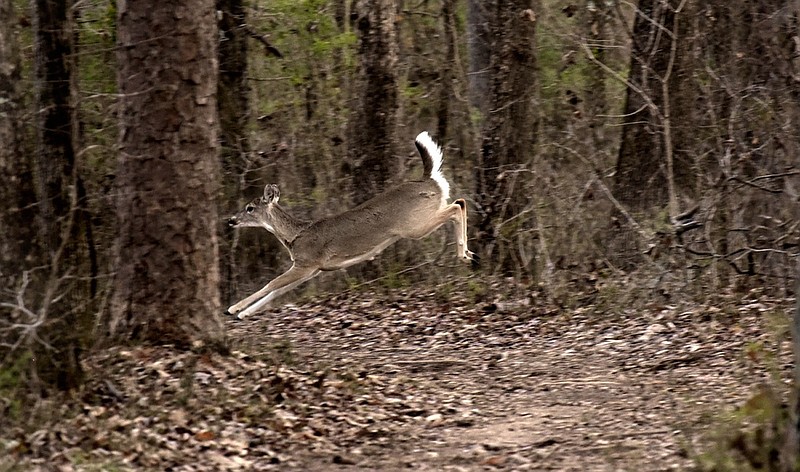NASHVILLE - Tennessee agriculture officials have implemented new emergency rules for captive and wild deer herds after ten wild deer recently were found to have chronic wasting disease, a deadly neurological disorder.
State Agriculture Commissioner Jai Templeton announced the rules on Monday, saying they come after hunters recently shot the deer in Fayette and Hardeman counties in West Tennessee.
Targeted sampling conducted by the Tennessee Wildlife Resource Agency (TWRA) indicated the presence of CWD.
While CWD has no known risk to humans or livestock, the contagious disease is dangerous to cervids, which are animals that include deer, elk, moose, caribou and reindeer.
With the infectious disease having been found in at least 26 states, now including Tennessee, as well as Candada, officials nationwide have been scrambling to prevent further spread.
Fears are the disease, which is has no known cure and is 100 percent fatal, could decimate deer populations.
While CWD has no known risk to people and livestock, testing is recommended prior to consuming deer or elk meat harvested within the CWD Management Zone, which includes Fayette, Hardeman, and McNairy counties.
"We have been working hard to prepare for this potential threat," Templeton said in a news release.
He said his department worked in collaboration with TWRA, U.S. Department of Agriculture, hunters and captive her owners to develop a response plan, calling the plan "critical in protecting the wild and captive deer and elk in our state."
Now it's being implemented. Rules include:
» Owners of captive deer and elk will be required to report their herd inventory, location, and any sick animals to the State Veterinarian.
They will also be required to report deaths among their fenced captive cervids within 24 hours and make the carcass available to TDA for further testing.
» Importation of captive cervids into the state and the movement of captive deer or elk within the state will require prior approval and a permit from the State Veterinarian, as well as USDA-approved identification.
Requirements don't apply to white-tailed deer and wild elk, which are prohibited from being retained in captive facilities.
State Veterinarian Dr. Charlie Hatcher noted that just weeks before the detection of CWD in West Tennessee, the department joined with other partners for a "tabletop exercise" to discuss and finalize their response plan.
"Now, we're following through," Hatcher said. "We encourage captive herd owners to keep a close eye on the animals in their care and report any signs of illness immediately."
In 2013, a voluntary program administered by state agriculture officials, the Tennessee CWD Herd Certification Program, was put in place to provide uniform herd certification standards and to support the domestic and international marketability of cervid herds.
Facilities can be certified as disease-free after five years of program enrollment with no evidence of disease, and the program is required for the interstate movement of CWD-susceptible cervids.
Earlier this month, the Times Free Press reported TWRA, which regulates hunting, adopted it own new rules to combat the spread of the disease.
Any deer, elk or moose harvested outside the state must have its meat removed from the bone before being brought into Tennessee. Previous rules applied only to states where the disease had been found.
Another regulation which goes into effect for the 2019 hunting season bans use of natural deer urine in Tennessee.
"It's going to be an inconvenience to hunters, but Tennessee isn't the only state doing this," TWRA big game biologist Ben Layton said. "Regulations have been put in place in other states to slow down the spread of Chronic Wasting Disease."
The disease causes drastic weight loss, stumbling, listlessness and other neurological symptoms before eventual death for the animals.
There is no treatment or vaccine to cure it. Scientists believe the disease is still contagious long after an infected animal is dead.
Some states, such as Wisconsin, have seen entire herds wiped out due to the highly infectious disease.
Contact Andy Sher at asher@timesfreepress.com or 615-255-0550. Follow on Twitter @AndySher1.
